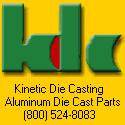What to Write on Your Resume. An empty page watch’s you, and you are about to type the things which will ‘sell’ you to your boss. What do you say?
1. Essential information
Your name, birthday, present address, and contact information (home telephone number, mobile phone number, and e-mail).
2. Educational information
Where you graduated (or will be graduating from), and graduate school, if any.
3. Awards, special citations
Are you a dean’s lister? Graduated with honors? Don’t be too modest—these things will help demonstrate to your employer that you are serious in what you do.
4. Job Experiences
Did you volunteer at a museum? Did on-the-job training (OJT) for a publishing house? Became an helper to a scientist/professor? Put these in as it will illustrate to your employer that you are serious about the career path you are taking.
5. Seminars, workshops attended
These will show how much you are willing to learn, especially if it is beyond the academe (not required, or held outside the campus).
6. References
During college, do you retain information that professor who believed in you; continually influencing you to persist on writing, or to apply for a certain job? Ask him or her if you can add his or her name in your resume as a reference. A reference is someone who knows you well; it is better to stick with someone who really knows you and how you work, rather than someone well-known, whose name will seem good on your resume. Why? Because your reference will be the people the company you are applying to will inquire about you. You wouldn’t want them ignoring an e-mail from the company because they cannot remember you, or because they have nothing good to say about you.
Super Jobs For You gives information on how to get a job and how to hire good people. If you are looking for a Die Casting Job look at this website. This Die Casting Blog will give you more information you can use for manufacturing.



